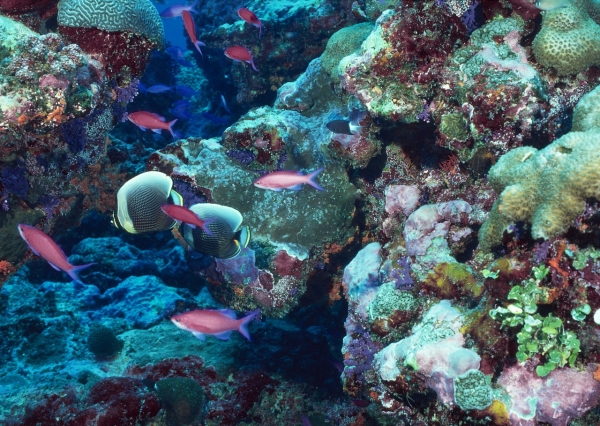In the study, connectivity particularly impacted herbivorous reef fish groups, which are most critical to coral reef resilience, providing evidence that decision-makers should incorporate connectivity into how they prioritise conservation areas.
The findings also revealed that, alongside oceanographic connectivity, sea surface temperature and levels of chlorophyll (the green pigment in plants that drives photosynthesis) strongly predict reef fish distribution and abundance in the WIO. Protecting reefs is essential in this area, particularly for rapidly growing local communities, which are highly dependent on reefs and vulnerable to the impacts of climate change.
Lead author Laura Warmuth (Department of Biology, University of Oxford) said: ‘It was striking that herbivorous fish – which are critical to reef resilience – were particularly strongly impacted by ocean connectivity. Efficient conservation area prioritisation should include connectivity for decision making regarding marine protected area management across country borders. This is particularly relevant in the human-pressured WIO region, where annual bleaching is predicted on most coral reefs by mid-century, even under optimistic climate change scenarios.’
Read more at: University of Oxford
(Photo Credit: j981511225 via Pixabay
Top Stories Sci/Tech Ecosystems

